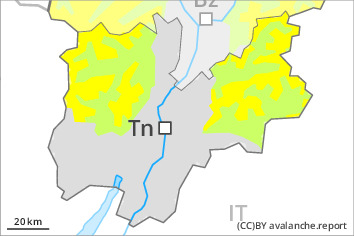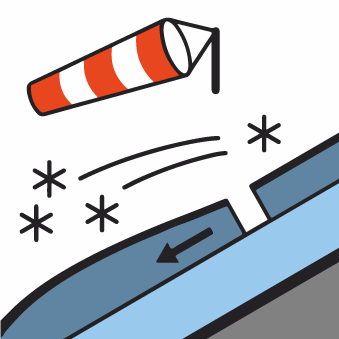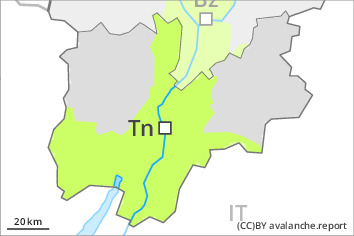
Danger level
 | 2200m |
|  |
|  |

Fresh wind slabs require caution.
The fresh wind slabs can be released by a single winter sport participant in some cases. They are to be evaluated with care and prudence in particular on west to north to east facing aspects above approximately 2200 m. At elevated altitudes the likelihood of avalanches being released is greater. Additionally in isolated cases dry avalanches can also penetrate deep layers. Avalanches can reach medium size.
On extremely steep sunny slopes moist loose snow slides are possible.
Snowpack
dp.6: cold, loose snow and wind
5 to 10 cm of snow, and even more in some localities, fell on Friday. As a consequence of the occasionally strong northwesterly wind, fresh snow drift accumulations formed. These are lying on soft layers in particular on west to north to east facing aspects above approximately 2200 m.
In very isolated cases weak layers exist in the old snowpack, especially on steep shady slopes above approximately 2400 m.
Outgoing longwave radiation during the night will be reduced in some case. The wind will be moderate to strong in particular in the regions of the south exposed to the foehn wind. These weather conditions as the day progresses will give rise to moistening of the snowpack at low and intermediate altitudes.
The snowpack will be generally subject to considerable local variations.
Tendency
The wind slabs remain in some cases prone to triggering at elevated altitudes.


